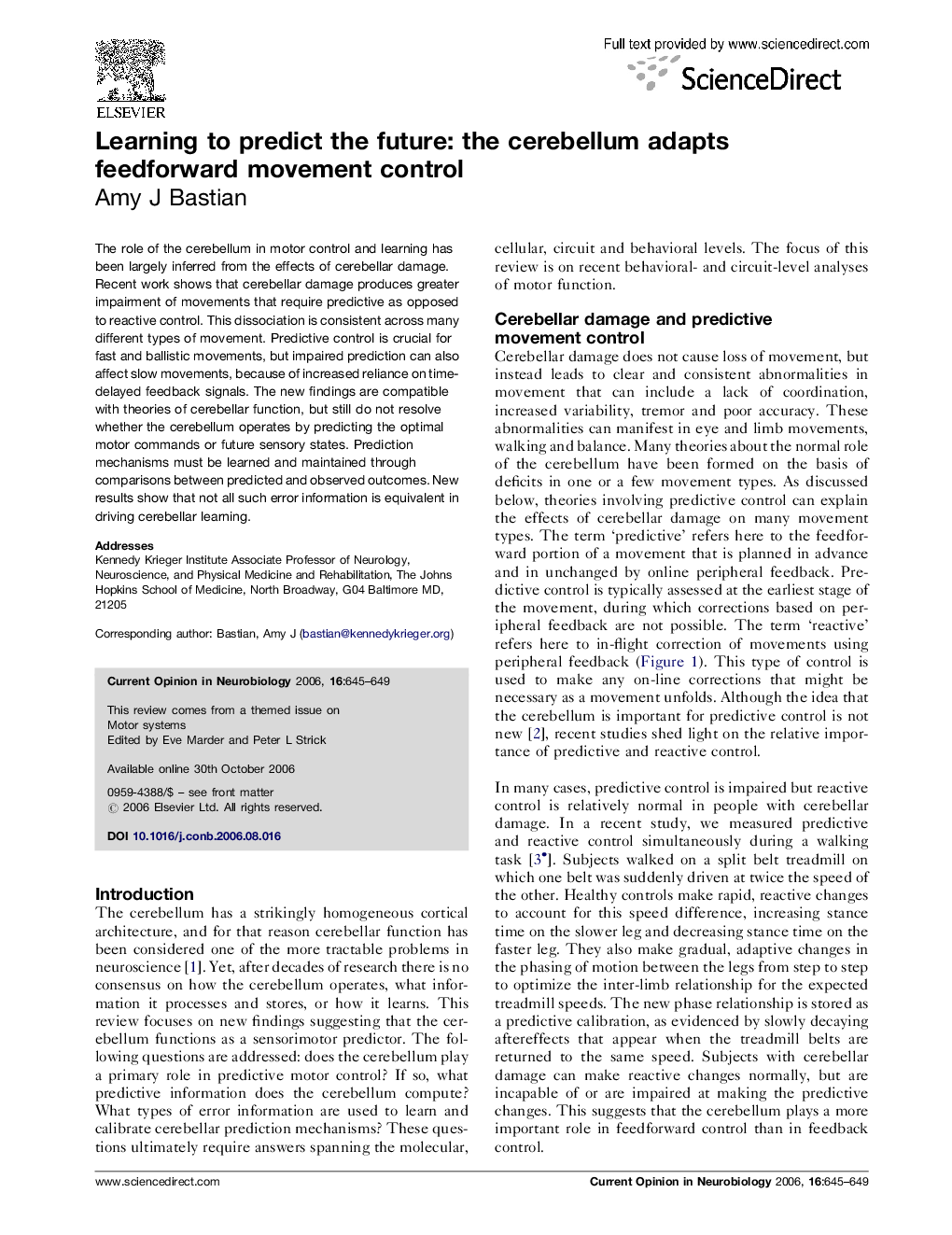| Article ID | Journal | Published Year | Pages | File Type |
|---|---|---|---|---|
| 4334696 | Current Opinion in Neurobiology | 2006 | 5 Pages |
The role of the cerebellum in motor control and learning has been largely inferred from the effects of cerebellar damage. Recent work shows that cerebellar damage produces greater impairment of movements that require predictive as opposed to reactive control. This dissociation is consistent across many different types of movement. Predictive control is crucial for fast and ballistic movements, but impaired prediction can also affect slow movements, because of increased reliance on time-delayed feedback signals. The new findings are compatible with theories of cerebellar function, but still do not resolve whether the cerebellum operates by predicting the optimal motor commands or future sensory states. Prediction mechanisms must be learned and maintained through comparisons between predicted and observed outcomes. New results show that not all such error information is equivalent in driving cerebellar learning.
